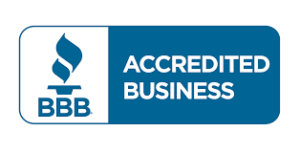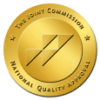A lot of people hear “alcoholism” and picture someone who has completely lost control. Real life is usually messier than that. Alcoholism is commonly used to describe alcohol use disorder, which is a pattern of drinking that keeps getting bigger in your life, even when it’s causing problems you cannot ignore.
If you’re looking into alcohol detox in Tennessee, it’s often because alcohol is no longer just something you do. It’s something your body expects.

Alcoholism vs. Alcohol Use Disorder
Alcohol use disorder is not a character flaw. [1] It’s a health condition that affects the brain, stress response, and decision-making. Some people drink daily. Others binge, stop for a few days, then repeat the cycle.
Some keep a job and look fine on the outside, but their routines quietly revolve around alcohol.
The common thread is that alcohol keeps winning, even when you have real reasons to stop.
How Alcohol Starts Taking Up More Space
It usually starts small. A drink to take the edge off after work. Something to help you sleep. Something that makes dinner, a party, or a tough day feel easier.
Then you notice the goalposts keep moving. You pour a little more than you meant to. You drink on a night you swore you would keep clear. You make rules like “only on weekends” or “only after dinner,” and somehow you keep finding reasons those rules don’t count.
Your body can shift along with it. Sometimes tolerance climbs, so it takes more to feel anything. Other times it goes the other way, and you feel lousy faster, but once you start, stopping still feels weirdly hard. And mornings are often when it becomes obvious. Shaky hands, sweat, nausea, a jumpy stomach, irritability, a racing heart, that wired, anxious feeling that doesn’t match what is happening around you.
When people hit that moment and realize quitting isn’t just uncomfortable, it can feel scary, that’s when a lot of them end up searching “alcohol detox Tennessee” because they want a safer way to get through it.
Why It’s Not Just Willpower, and Why Support Changes Outcomes
Willpower matters, but it is not the whole story. Once alcohol becomes a regular go-to, it starts rewiring how your brain handles reward, stress, and impulses.
So when you try to stop, it can feel like someone turned the volume up on everything.
Anxiety gets sharper, sleep falls apart, your mood swings harder, and some people get hit with panic out of nowhere. This is your nervous system adjusting to a big change.
That’s why having real support can change the outcome. A structured alcohol detox program Tennessee residents can count on focuses on the physical side first, with monitoring and stabilization, so you’re not trying to push through symptoms that can ramp up quickly.
Detox is not about toughness. It is about safety and giving you a steadier starting point for what comes next.
Is Alcohol addictive?
Yes. Alcohol is addictive, and it can hook you both mentally and physically. [2] Over time, your brain starts to adjust to regular drinking, especially in the systems that regulate stress, calm, and reward.
At first, it may feel like alcohol helps you relax or shut your mind off, but the more often you use it, the more your brain starts to rely on it to feel “normal.” That’s when tolerance creeps up, cravings get louder, and withdrawal symptoms can show up when you try to stop.
When someone stops drinking after heavy or consistent use, the body can overcorrect. The nervous system that was being slowed down by alcohol can swing into overdrive, which is why withdrawal can include symptoms like shaking, sweating, anxiety, nausea, trouble sleeping, and a rapid heartbeat.
In more severe cases, withdrawal can become dangerous and can include seizures or delirium tremens, which is why medical alcohol detox in Tennessee matters for many people.
If you’re searching for alcohol withdrawal treatment Tennessee, the key point to understand is this: detox is not a test of toughness.
Alcohol detox can be fatal in severe cases, and the safest move is medical supervision when dependence is present. A Tennessee alcohol detox center can help monitor symptoms, manage risk, and respond quickly if withdrawal escalates.
This is also where level of care starts to matter. Some people need inpatient alcohol detox Tennessee options because their risk is higher or their home environment is not stable. Others may qualify for a more flexible setting later on, but detox still needs to be approached seriously first.

Alcohol Withdrawal Symptoms and Timeline
Alcohol withdrawal is what happens when your brain and body have adjusted to regular drinking, then alcohol is suddenly removed. [3] A hangover is your body recovering while alcohol is still clearing. Withdrawal is different; it’s your nervous system reacting because it has learned to function with alcohol in the mix.
If you are considering alcohol withdrawal treatment Tennessee options, this timeline is the part that matters most, because it explains why symptoms tend to show up in waves and why some of those waves can be dangerous without medical supervision.
Why Certain Symptoms Show Up When They Do
Alcohol slows down parts of the nervous system that control alertness, anxiety, and physical arousal. Over time, your brain adapts by turning up its “activation” signals so you can still function while drinking.
When alcohol is removed, the brakes disappear, but the activation is still turned up. That rebound is why people can feel wired, shaky, panicky, sweaty, nauseated, and unable to sleep.
The timing is tied to a few things.
- Falling blood alcohol level: Many symptoms start when your blood alcohol drops, not only when it hits zero. That’s why some people feel withdrawal overnight or first thing in the morning.
- Nervous system rebound: Your brain needs time to recalibrate. The imbalance does not correct instantly, which is why symptoms can intensify after the first day.
- Stress hormones and autonomic activation: Withdrawal pushes the body into a heightened stress state, which can raise heart rate and blood pressure and contribute to agitation and insomnia.
- History of withdrawal: Repeated withdrawals can make the nervous system more reactive over time. People sometimes experience worse symptoms with each attempt, even if their drinking level is similar.
How Alcohol Withdrawal is Assessed in Medical Settings
In medical alcohol detox Tennessee settings, teams keep a close eye on how withdrawal is trending, usually with regular symptom check-ins and repeated vital sign checks. The point is to catch problems early, because alcohol withdrawal can change quickly. Someone can seem steady in the morning and look a lot worse a few hours later, so consistent monitoring matters.
Monitoring often focuses on:
- Heart rate, blood pressure, temperature, and hydration status
- Tremor intensity, sweating, nausea, vomiting, and sleep disruption
- Anxiety, agitation, confusion, and perceptual changes
- Seizure risk factors and history
The earlier a team can intervene, the less likely symptoms are to snowball into severe withdrawal.
The alcohol withdrawal timeline, what you feel, why it happens, and how it’s treated
What Happens During Alcohol Detox in Tennessee?
Early Withdrawal Phase For Alcohol Detox
What you might notice:
Anxiety, restlessness, irritability, mild tremor, sweating, headache, nausea, racing heart, trouble sleeping.
Why it happens?
This is often the rebound phase as alcohol levels fall. Your nervous system is no longer slowed down, so the body shifts into a hyperalert state. For many people, this feels like a sudden spike in anxiety, even if they don’t usually think of themselves as anxious.
How it’s treated:
In a medical setting, treatment is focused on monitoring, hydration, and symptom control. If symptoms are progressing or risk is higher, clinicians may use medications that calm the nervous system and reduce the chance of escalation. Supportive care, a quiet environment, fluids, and nutrition also matter early, especially if nausea and poor appetite are present.
Peak Withdrawal Phase
What you might notice:
Symptoms can intensify. Tremors may become more noticeable. Sleep can be very poor. Some people feel a wave of panic or agitation. Nausea and vomiting can increase. Appetite is often low.
Why it happens?
The nervous system remains overactivated as the brain continues adjusting to the absence of alcohol. Sleep disruption is common because alcohol affects sleep architecture. Once it’s removed, people may feel exhausted but unable to shut their brains off.
How it’s treated:
Medical teams continue close monitoring, especially for rising blood pressure, changes in heart rate, dehydration, and worsening agitation. Medication support may be used to reduce symptom intensity and protect against severe withdrawal. Fluids and electrolyte support may be needed if vomiting is significant. Nutritional support and vitamins may also be introduced early, depending on the clinical picture.
Stabilization Phase
What you might notice:
This is the window when the risk of serious complications can increase. Some people experience worsening agitation, shakiness, and confusion. Others may develop alcohol related hallucinosis, which can involve seeing or hearing things that are not there while still being somewhat oriented. Seizure risk is also a key concern during this period for high-risk individuals.
Why it happens?
The brain is still in a high excitation state, and certain withdrawal complications tend to cluster here. Seizures can occur when the nervous system fires too intensely while the brain is still recalibrating. Hallucinations can show up because perception and nervous system signaling are disrupted during this rebound.
How it’s treated:
This is where medical supervision can be critical. Treatment may include medications aimed at preventing seizures and reducing overactivation. Clinicians also monitor for dehydration, sleep deprivation, and instability of vital signs.
If hallucinations occur, the focus is on safety, orientation, and calming the withdrawal state, rather than treating hallucinations in isolation. Supportive measures, reassurance, a low stimulation environment, and continuous observation can make a major difference.
Post-Acute Withdrawal Phase
What you might notice:
Many people start to feel physically steadier, but they may feel drained, emotionally raw, and sleep-deprived. Appetite can return slowly. Tremors often lessen. Anxiety may come and go. Concentration can be poor, and cravings can rise as the body feels better and the brain starts bargaining.
Why it happens?
After a few days of running in survival mode, your body is usually drained. When the most intense withdrawal symptoms start to ease up, the crash can feel real. People often get hit with heavy fatigue, like their system finally has permission to stop bracing.
Sleep can still be messy, too. Even if you are exhausted, your brain may not flip back into normal sleep patterns right away because it is still rebalancing. Mood can swing around for the same reason. If alcohol has been your main way of managing stress or shutting feelings off, your nervous system has to relearn how to regulate without it, and that adjustment period can feel rocky before it starts to level out.
How it’s treated:
At this stage, the focus usually shifts from crisis management to staying steady. That often means continued check-ins and monitoring, rebuilding sleep routines, and keeping hydration and nutrition on track.
If certain symptoms are still hanging on, clinicians may keep using targeted medications for support, then taper them down carefully as your system settles.
Education matters here, too, because this is when many people get caught off guard. Once you start feeling better, it is easy to assume the risk has passed. But that early “I’m fine now” window is a common time for cravings and relapse to spike, especially if stress hits or sleep is still off.
The goal is to help you stay grounded and keep momentum while your brain and body fully reset.
Post-Acute Withdrawal Phase
What you might notice:
Physical symptoms may continue to improve, but sleep issues, anxiety, irritability, low mood, and cravings can persist. Some people feel foggy or emotionally blunted. Others feel surprisingly sensitive and reactive.
Why it happens?
Withdrawal does not end the moment the shakes stop. The brain’s stress and reward systems may take longer to stabilize. Alcohol also disrupts sleep and mood regulation, and those systems often lag behind physical stabilization.
How it’s treated:
This is where the plan after detox matters. Detox addresses withdrawal. Ongoing treatment addresses the reasons alcohol became necessary in the first place, and it builds relapse prevention skills for real-life triggers. Many programs use this period to transition clients into the next appropriate level of care, such as alcohol focused residential care, alcohol PHP, alcohol IOP, or structured outpatient support.
When withdrawal is most dangerous
Not everyone goes into severe withdrawal, but the serious complications happen often enough that it is not something to brush off. The highest risk window is usually the first few days after the last drink. Risk tends to be higher for people who drink heavily every day, have been through withdrawal before, have had past complications, or have underlying medical issues.
There are also clear red flags that mean you shouldn’t wait it out at home. Seizures, intense confusion, hallucinations where the person is disoriented or cannot tell what is real, fainting, chest pain, trouble breathing, or being unable to keep fluids down are all reasons to get urgent medical care.
Signs You May Need Alcohol Detox
A lot of people wait too long because they think detox is only for someone drinking “all day.” In reality, the biggest question is not how your drinking looks to other people. It’s whether your body has become dependent, and whether stopping could put you at risk.
If you are searching alcohol detox Tennessee or Tennessee alcohol detox center, it is usually because one of these signs is already showing up.
Signs your body is physically dependent
Physical dependence often shows up in patterns like:
- You feel shaky, sweaty, nauseated, or anxious when you have not had a drink yet
- You drink in the morning or early in the day to steady yourself
- You can’t sleep without alcohol, or you wake up in the night, sweating and restless
- You need more alcohol than you used to feel normal
- You have tried to stop, but withdrawal symptoms pull you back in
Even if you are “functional,” these are common indicators that alcohol has shifted from a habit to a physical need, which is when medical alcohol detox Tennessee becomes the safer starting point.
Risk factors that raise the danger level
Some situations make withdrawal more unpredictable and more medically risky. [4] You may need supervised detox, often in an inpatient alcohol detox Tennessee setting, if you have:
- A history of withdrawal, especially if it included severe shaking, hallucinations, or seizures
- Heavy daily drinking over a long period
- Significant medical issues, especially heart or liver concerns
- Been mixing alcohol with benzodiazepines or other sedatives
- Limited support at home, or a home environment that makes relapse likely
When detox at home is not safe, and when to seek urgent care
Detoxing at home is not just uncomfortable for many people; it can be dangerous. If you have signs of dependence, especially if you have ever had severe withdrawal symptoms, you shouldn’t try to quit cold turkey without medical guidance.
Seek emergency help immediately if severe symptoms show up, such as seizures, confusion, hallucinations, fainting, chest pain, or breathing problems.
If symptoms are intense but not immediately life-threatening, it still makes sense to talk to a professional as soon as possible.
By planning alcohol withdrawal treatment, Tennessee residents can reduce risk and help you move into the next level of care instead of bouncing between panic, withdrawal, and relapse.
What Our Patients Say: Stories of Hope and Recovery
Hear directly from those who have walked the path to recovery. Our patients’ stories highlight the compassionate care, effective programs, and life-changing support they’ve experienced. Let their journeys inspire you as you take your first steps toward healing.










Thank you all so much!




















The facility itself is clean, well-maintained, and equipped with all the necessary amenities to provide a serene and supportive environment.
What truly stands out is the personalized approach to care. The team developed a treatment plan tailored to my specific needs, incorporating both medical and holistic therapies. This comprehensive approach not only addressed my physical withdrawal symptoms but also supported my mental and emotional well-being.
The counselors and therapists offer a range of therapies that helped me understand the root causes of my addiction and develop effective coping strategies. Group therapy sessions provided a safe space to share experiences and gain insights from others on similar journeys.
Overall, my experience with this medical detox program was life-changing. The compassionate and skilled staff, combined with the personalized treatment approach, provided me with the foundation I needed for a successful recovery. I highly recommend this facility to anyone seeking a safe and supportive environment for detox and recovery.
But it's the people who make this place truly special. The staff, they've been there, they understand the struggle. No judgment, just support, encouragement, and a genuine desire to help you heal. They treated me like an old friend, even though I was just visiting for my buddy.
They've got a whole range of therapies to help you on your journey – individual counseling, group sessions, and even a fitness center to get you moving again. It's not just about detox. It's about rebuilding your life from the ground up.
My friend, the owner, he's living proof that this place works. He poured his heart into creating a haven for those seeking recovery, and his passion shines through in every detail.
So, if you're ready to take that first step, this is the place. Trust me, they'll walk beside you every step of the way.
What to Expect during Alcohol Detox in Tennessee?
-
Intake & Medical Evaluation
Alcohol DetoxDetox usually starts with a straightforward check-in so the team can figure out how to keep you safe and comfortable. They will ask how much you have been drinking, how often, when your last drink was, and what happened the last time you tried to stop.
They will also ask about medications, any other substances, mental health history, and medical issues that can change the risk level, like high blood pressure, liver problems, or heart concerns.
It’s not about judging you or catching you in something. It’s about building the right plan. Someone who has had serious withdrawal before, or who drinks heavily every day, needs a different approach than someone who mainly binge drinks and feels anxious, shaky, or unable to sleep when they stop.
The more honest you are upfront, the safer and smoother the process tends to be.
-
Monitoring and stabilization
Alcohol DetoxOnce you’re admitted, the early phase of detox is about watching your body and responding early if symptoms escalate. In a medical detox setting, staff are typically checking vital signs regularly and tracking withdrawal symptoms using standard tools so they can adjust support in real time.
This part matters because alcohol withdrawal is not linear. People can feel “fine” in the morning, then feel noticeably worse later that day. Stabilization is the goal, not pushing you to endure symptoms until they pass.
If you’re searching inpatient alcohol detox in Tennessee, this is usually why. Inpatient detox offers a controlled environment with continuous monitoring, which is often the safest option for people at higher risk. Outpatient alcohol detox Tennessee can be appropriate for some people, but only when risk is lower and support at home is stable.
The safest placement is always based on the clinical picture, not preference alone.
-
Comfort and safety supports during withdrawal
Alcohol DetoxDetox is not just about “getting through it.”
A well-run alcohol detox program that Tennessee residents can rely on is also trying to reduce suffering while protecting safety. That can include medication support when appropriate, hydration and nutrition support, sleep support, and practical strategies that reduce panic and distress when your nervous system is on high alert.
It also includes planning for what comes next. Detox gets you through withdrawal. It doesn’t address the reasons drinking became your go-to coping tool in the first place. Most people need a clear next step, even if they’re not ready to commit to a long plan on day one.
-
Alcohol detox Murfreesboro, TN, logistics for local clients and families
Alcohol DetoxIf you are local and looking up alcohol detox in Murfreesboro, TN, you are probably trying to get a few practical answers fast. How soon can you be admitted? What happens on day one? What should your family do while you are getting stabilized?
In most cases, the first day stays basic and safety-focused. Intake, medical checks, a plan for managing symptoms, and getting you settled. It’s usually not a deep therapy day, because the priority is getting your body through the early withdrawal window safely.
Families often want to do something useful right away, and that makes sense. Early on, the most helpful things are usually logistical. Handling calls and paperwork, bringing essentials if the program allows it, and giving you room to focus on stabilizing instead of trying to process everything at once.
Detox is a short, intense stretch. The goal is to get you steady enough to think clearly about what comes next, whether that is residential care, PHP, IOP, or outpatient treatment.
-
Insurance and Accessibility for Tennessee Residents
Insurance Approved Alcohol DetoxOur admissions team verifies your coverage and explains benefits for alcohol detoxification services, making quality care accessible to families throughout Nashville, Memphis, Knoxville, Chattanooga, and surrounding communities.
-
Personalized Stabilization Plan
Personalized Alcohol Detox PlanCompleting alcohol detox is a critical first step, but continued treatment is essential for lasting recovery.
Before discharge from Tennessee Detox Center, our team develops a comprehensive aftercare plan that may include residential treatment, partial hospitalization programs, intensive outpatient therapy, or ongoing counseling.
We connect you with Tennessee recovery resources, support groups, and addiction specialists to ensure continuity of care. Research from the National Institute on Drug Abuse confirms that comprehensive treatment following detox significantly improves long-term sobriety outcomes.
-
Psychological Support During Detox
Alcohol detox isn’t just physical—it’s emotionally challenging too.
Our licensed counselors provide individual support throughout your stay, helping you process the psychological aspects of alcohol withdrawal and early recovery. We address co-occurring mental health conditions such as depression and anxiety that often accompany alcohol addiction.
For Tennessee families, we offer education about alcoholism as a disease and guidance on supporting their loved one’s recovery journey.
Understanding that addiction is a treatable medical condition helps reduce stigma and encourages family involvement in the healing process.
-
Physical Restoration and Nutritional Support During Alcohol Detox
Chronic alcohol abuse depletes essential nutrients and causes dehydration, which Tennessee Detox Center addresses through comprehensive medical care.
We provide IV hydration therapy when necessary, along with vitamin supplementation including thiamine, folate, and B-complex vitamins to prevent neurological complications.
Our nutritional meal plans support your body’s healing process, helping restore physical health damaged by prolonged alcohol consumption.
This holistic approach to alcohol detoxification addresses both immediate withdrawal management and long-term wellness.

Medications we use for Alcohol Detox
A lot of people are nervous about detox meds, and it’s not hard to understand why. You don’t want to feel knocked out, and you definitely do not want to swap one problem for another. Those are legitimate concerns, which is exactly why medication in detox should never be a one-size-fits-all thing.
In alcohol withdrawal treatment in Tennessee programs, medications are used with a clear goal in mind. They’re there to take the edge off withdrawal, lower the risk of dangerous complications like seizures, and help your body get through a high-stress stretch more safely.
The point is stabilization, not getting you “drugged.” Done correctly, medication support is temporary, closely monitored, and adjusted based on how you’re actually doing. [5]
Why medication plans are individualized
There is no one-size-fits-all detox medication plan that works for everyone. What you need depends on what your withdrawal looks like and what else is going on with your health.
Clinicians look at things like symptom severity, your drinking pattern, age, medical history, liver concerns, other medications you take, and whether you have had complicated withdrawal before.
Some people come in with milder symptoms and need very little medication support. Others are higher risk and need a more structured approach with closer monitoring to prevent escalation.
The goal is not to medicate everyone. The goal is to match the level of support to the level of risk.
Medication categories commonly used in alcohol withdrawal management
In medical alcohol detox Tennessee settings, the medication choices usually come down to what your body is doing in real time. The goal is to settle an overactive nervous system and prevent withdrawal from escalating into something dangerous.
Depending on your symptoms and risk level, a care team may use:
- Medications that calm the nervous system and lower the risk of severe complications, including seizures
- Medicines that help with sleep, agitation, or severe anxiety when it is clinically appropriate
- Symptom relief medications, such as options for nausea, headaches, or a fast heart rate, when they are safe for you
The exact mix depends on your assessment, and it should be explained in plain language. If anything feels vague, it is reasonable to ask what each medication is for, how long it’s expected to be used, and what monitoring is in place to keep you safe.
Vitamins and medical supports that matter in detox settings
Heavy drinking can quietly drain the basics your body needs to function, especially if you have not been eating well, you’ve been vomiting, or you are running on stress and short sleep. That’s why detox teams often start with simple medical supports early, because they can make a real difference in how safe and stable you feel.
Thiamine, also called vitamin B1, is a big one. It is commonly given to help protect against serious brain-related complications in people who have been drinking heavily for a long time. [6]
Hydration support and electrolyte checks matter for the same reason. When fluids and electrolytes are off, symptoms can feel worse, and your body has a harder time settling.
If you have tried to stop before and it felt scary or unsafe, you are not being dramatic. Alcohol withdrawal can turn serious, and the goal is safe stabilization, not proving you can suffer through it alone.
Levels of Care, Dual Diagnosis, and Co-Occurring Disorders
Detox is the first step when your body is dependent on alcohol. It is not the whole recovery plan. The goal of alcohol detox in Tennessee is to get you through withdrawal safely, then connect you with the level of care that actually helps you stay steady once real life starts back up.
This matters because alcohol withdrawal is not always predictable. Some people have mild symptoms. Others can develop severe complications.
Alcohol detox can be fatal in severe cases, which is why alcohol withdrawal treatment Tennessee should be medically supervised when dependence is present.
Inpatient Alcohol Detox Tennessee, Who Needs 24-hour Care
Inpatient alcohol detox Tennessee is typically the safest fit when there is a higher medical risk, a history of complicated withdrawal, or a home environment that makes it hard to stay safe. Inpatient detox gives you continuous monitoring, which allows staff to respond quickly if symptoms escalate.
People often do better with inpatient detox when:
- They have had seizures, hallucinations, or delirium tremens in the past
- They drink heavily every day, or have been drinking heavily for a long time
- They have significant medical issues, especially heart or liver concerns
- They have been mixing alcohol with sedatives or other drugs
- They do not have stable support at home, or their environment is full of triggers
If you are searching Tennessee alcohol detox center options, this is one of the key questions to ask: whether inpatient detox is recommended based on your risk, not just your preference.
Outpatient alcohol detox in Tennessee: who may qualify and what it requires
Outpatient alcohol detox in Tennessee can be the right fit for some people, but it’s not automatically the “easier” or safer option. It usually makes sense only when symptoms are expected to remain in the mild to moderate range, your risk factors are low, and you have dependable support at home.
Outpatient detox tends to work best when you can:
- Show up reliably for scheduled check-ins
- Follow the plan exactly, without skipping steps.
- Stay alcohol-free between visits.
- Recover in a stable home environment where someone can keep an eye on you and step in if symptoms spike
If you are stuck between inpatient and outpatient, don’t let pride decide for you. Alcohol withdrawal can escalate fast. The safest move is to let a medical assessment guide the recommendation, based on your history and current risk level.
What usually comes after detox, alcohol focused treatment options
Detox clears the physical crisis. Treatment is where you build the skills that keep you from cycling back when stress hits, sleep is off, or cravings spike. A strong alcohol detox program Tennessee residents can trust should help you plan the next step that fits your needs, not a generic plan that looks good on paper.
Common next steps after detox include:
- Alcohol residential treatment, for people who need a highly structured environment to stabilize routines, cravings, and mental health
- Alcohol PHP, for people who need intensive daytime treatment with a return home or to supportive housing in the evenings
- Alcohol IOP, for people who need a strong structure but also need to balance work, family, or other responsibilities
- Alcohol outpatient treatment, for people who are stable enough for weekly therapy and ongoing relapse prevention work
Detox is the doorway. The next level of care is what protects your progress.
Dual diagnosis and co-occurring disorders with alcohol
Most people don’t drink heavily “for no reason.” A lot of the time, alcohol turns into a coping tool. It can feel like the fastest way to quiet anxiety, numb depression, take the edge off trauma symptoms, shut down chronic stress, or finally fall asleep.
The catch is that alcohol usually makes those issues worse over time, even if it feels like relief in the moment.
Dual diagnosis care means you treat the drinking and the mental health issues together, in the same plan, not one now and the other “later.” [7] If someone detoxes and then goes right back into untreated panic, depression, or trauma triggers, the pressure comes back fast, and relapse becomes a lot more likely.
For many people, addressing both sides is not a bonus. It’s what makes the difference between getting a few sober weeks and building real stability.
What Sets Tennessee Detox Center Apart from Other Rehab Centers?
If you are looking for alcohol detox in Tennessee, you are probably not shopping for a “nice program.” You are trying to solve a real problem safely, and quickly.
The most important question is whether the detox plan is medically appropriate for your withdrawal risk, and whether the program helps you transition into the next level of care instead of leaving you to figure it out when you are depleted and vulnerable.
Tennessee Detox Center is built around that reality. The focus is on medical safety first, then a clear plan for what comes after detox. That includes making sure you understand what is happening in your body, what symptoms to watch for, and what your next step should be once withdrawal stabilizes.
This is also where many people get stuck when they try to quit on their own. They make it a day or two, feel terrible, get scared, then drink again to stop the symptoms. A structured, medical alcohol detox Tennessee approach breaks that loop by managing withdrawal safely and helping you move forward with a plan.
If you’re searching for alcohol detox near me, or even alcohol detox in Murfreesboro, TN, don’t just look for the closest option.
Look for a program that treats withdrawal risk like the serious medical issue it can be, provides real monitoring, and helps you line up what comes after detox, whether that is inpatient care, alcohol PHP, alcohol IOP, or ongoing outpatient support.
Detox should not be the finish line. It should set you up with a clear next step so you’re not walking back into the same routine with no plan.








Begin Alcohol Detox in Tennessee Today
If you’re reading this because you are scared of withdrawal, that is not you being dramatic. It’s your body signaling that stopping might not be as simple as willpower.
Alcohol detox in Tennessee should start with a private assessment that looks at your drinking pattern, your withdrawal history, your medical risks, and what kind of support you actually have at home.
From there, the next step is matching you to the safest level of care, whether that means inpatient alcohol detox Tennessee options for higher risk situations or outpatient alcohol detox Tennessee for people who truly qualify.
When you reach out, you only need to be honest about what is happening right now. How much you are drinking, when your last drink was, what symptoms you have had when you try to stop, and whether you have ever had severe withdrawal symptoms in the past.
If you are local and searching for alcohol detox in Murfreesboro, TN, you can also ask practical questions early: what to bring, what the first day will look like, and how quickly an assessment can be scheduled.
Addiction Group. (n.d.). Tennessee drug and alcohol statistics. Retrieved July 28, 2025, from https://www.addictiongroup.org/tennessee/drug-statistics/
Substance Abuse and Mental Health Services Administration (SAMHSA). (2023). 2023 ICCPUD state report: Underage drinking prevention – Tennessee. U.S. Department of Health and Human Services. Retrieved from https://library.samhsa.gov/sites/default/files/tennessee-iccpud-state-report-2023.pdf
Tennessee Alcoholic Beverage Commission. (2024). Report to prevent underage drinking, drunk driving, and other harmful uses of alcohol (PC 961). State of Tennessee. Retrieved from https://www.tn.gov/content/dam/tn/abc-documents/abc-documents/PC-961-2024-Report-to-Prevent-Underage-Drinking-Drunk-driving-and-Other-Harmful-Uses-of-Alcohol.pdf
National Institute on Alcohol Abuse and Alcoholism (NIAAA). (2012). Alcohol withdrawal syndrome. In S. C. Merrill & B. S. Frances (Eds.), The management of alcohol use disorders: A practical guide for clinicians (NIH Publication No. 12–5191). National Center for Biotechnology Information. Retrieved from https://www.ncbi.nlm.nih.gov/books/NBK64119/

Medically Reviewed By:
Dr. Vahid Osman, M.D.
Board-Certified Psychiatrist and Addictionologist
Dr. Vahid Osman is a Board-Certified Psychiatrist and Addictionologist who has extensive experience in skillfully treating patients with mental illness, chemical dependency and developmental disorders. Dr. Osman has trained in Psychiatry in France and in Austin, Texas. Read more.

Clinically Reviewed By:
Josh Sprung, L.C.S.W.
Board Certified Clinical Social Worker
Joshua Sprung serves as a Clinical Reviewer at Tennessee Detox Center, bringing a wealth of expertise to ensure exceptional patient care. Read More
The Joint Commission – The Gold Seal of Approval® signifies that Tennessee Detox Center meets or exceeds rigorous performance standards in patient care, safety, and quality. It reflects a commitment to continuous improvement and clinical excellence.

LegitScript Certified – Confirms that Tennessee Detox Center operates in full compliance with laws and regulations, and meets high standards for transparency and accountability in addiction treatment marketing.

BBB Accredited – Demonstrates ethical business practices, commitment to customer satisfaction, and a trusted reputation within the community.
Psychology Today Verified – Indicates that Tennessee Detox Center is listed on Psychology Today, a trusted directory for verified mental health providers and treatment centers.
HIPAA Compliant – Ensures all patient health information (PHI) is protected and managed in accordance with strict federal privacy and data security standards.
ASAM Member – Tennessee Detox Center is a proud member of the American Society of Addiction Medicine (ASAM), reflecting a commitment to science-driven and evidence-based treatment standards.

Rutherford County Chamber of Commerce – Membership signifies active participation in the local community and support for regional growth and civic collaboration.
Frequently Asked Questions about Alcohol Detox in Tennessee
Common alcohol withdrawal symptoms include:
- Headaches and nausea
- Shaking or tremors
- Sweating and increased heart rate
- Anxiety, depression, and insomnia
- In severe cases: hallucinations or seizures (known as delirium tremens)
Because these symptoms can be dangerous, detoxing under medical supervision is strongly recommended.
Yes. Attempting to detox from alcohol at home can be life-threatening, especially for individuals with a history of heavy or long-term drinking. Tennessee Detox Center uses medications and monitoring to manage withdrawal safely and prevent complications like seizures or dehydration.
Commonly prescribed medications during alcohol detox include:
- Benzodiazepines (like Librium or Ativan) to reduce withdrawal anxiety and prevent seizures
- Anticonvulsants to control tremors
- Beta-blockers or clonidine to stabilize blood pressure and heart rate
- Nutritional support with vitamins like B1 (thiamine) to prevent brain damage (Wernicke-Korsakoff syndrome)
Detox is the first step in recovery. After detox, individuals are encouraged to continue treatment through:
- Residential or inpatient rehab
- Partial hospitalization (PHP) or intensive outpatient (IOP) programs
- Therapy and relapse prevention support
These programs address the psychological and behavioral aspects of addiction for long-term recovery.
Bring essential items like:
- Photo ID and insurance card
- Comfortable clothing
- Basic toiletries (non-alcohol-based)
- Prescribed medications (if approved by staff)
- A journal or reading material
Avoid bringing valuables, electronics, or alcohol-based products.
Detox focuses on safely removing alcohol from the body, while rehab treats the psychological, emotional, and behavioral roots of addiction. Most people complete detox first and then move into rehab for comprehensive recovery.
Get Family Support Now
Supporting Families Through Recovery
We understand addiction affects the whole family. Our comprehensive family program helps rebuild trust and restore relationships.
Weekly Family Therapy Sessions
Educational Workshops
Support Groups
Communication Skills Training
The information presented on Tennessee Detox Center website pages is intended solely for general educational and informational purposes related to addiction treatment, medical detoxification, rehabilitation services, and recovery support. This content is not intended to serve as medical advice, diagnosis, treatment planning, or a substitute for professional medical care. Substance use disorders are complex medical conditions that require individualized evaluation by qualified healthcare professionals.
Detoxification and rehabilitation needs vary widely based on the type of substance used, duration and frequency of use, physical health, mental health history, co-occurring disorders, and other individual factors. Information discussing detox timelines, withdrawal symptoms, medications, or treatment approaches is generalized and may not apply to every individual. Treatment decisions should always be made in consultation with licensed physicians, addiction specialists, or behavioral health providers.
If you or someone you love is experiencing a medical emergency — including but not limited to overdose, seizures, loss of consciousness, breathing difficulties, chest pain, suicidal thoughts, or violent behavior — call 911 immediately or go to the nearest emergency room. Tennessee Detox Center does not provide emergency medical services through this website, and no online content should delay urgent medical intervention.
Attempting to detox from alcohol, opioids, benzodiazepines, or other substances without medical supervision can be dangerous and potentially life-threatening. Withdrawal symptoms can be unpredictable and severe. Any detox-related information provided is for awareness only and should never replace professional medical oversight.
Information regarding insurance coverage, treatment costs, or payment options is provided for general guidance purposes only. Insurance benefits vary by carrier, policy, state regulations, and medical necessity determinations. Coverage information is not guaranteed and may change without notice. Tennessee Detox Center strongly encourages individuals to contact our admissions team directly to verify insurance benefits, eligibility, and coverage prior to making treatment decisions.
While reasonable efforts are made to ensure accuracy, Tennessee Detox Center makes no warranties regarding the completeness or timeliness of website content. Healthcare regulations, clinical standards, and insurance policies evolve regularly. Reliance on any information provided is at your own risk.
This website may include references or links to third-party resources for informational purposes. Such references do not constitute endorsements. Tennessee Detox Center is not responsible for external content, services, or policies.
Use of this website does not establish a provider-patient relationship. Contacting Tennessee Detox Center does not guarantee admission or treatment. Recovery outcomes vary and are never guaranteed.
All content published on Tennessee Detox Center website pages is provided for informational purposes only and should not be interpreted as medical, psychological, or legal advice. This information is not intended to diagnose, treat, cure, or prevent any disease or condition and should not replace consultation with licensed healthcare professionals.
Addiction is a chronic, relapsing medical condition that requires individualized care. Treatment approaches, detox protocols, and rehabilitation services vary depending on numerous factors unique to each individual. No information on this website should be relied upon to make treatment decisions without professional guidance.
If you are experiencing an emergency situation, including overdose, withdrawal complications, suicidal ideation, or immediate risk to yourself or others, call 911 immediately. Tennessee Detox Center does not provide emergency medical services online or via website communication.
Never attempt to discontinue substance use or begin detox without proper medical supervision. Withdrawal can cause serious medical complications. Any information regarding detoxification is general in nature and does not substitute for physician-directed care.
Insurance information presented on this website is intended solely to assist users in understanding potential coverage options. Coverage is subject to verification, medical necessity determinations, and policy limitations. Tennessee Detox Center encourages direct contact with our admissions specialists to confirm benefits and eligibility.
We do not guarantee treatment outcomes, length of stay, insurance approvals, or placement availability. Outcomes depend on numerous clinical and personal factors.
External links are provided for convenience and informational purposes only. Tennessee Detox Center assumes no responsibility for third-party content or practices.
Use of this website does not establish a doctor-patient or therapist-patient relationship. Recovery requires professional support and individualized care.
- Addiction Group. (n.d.). Tennessee drug and alcohol statistics. Retrieved July 28, 2025, from https://www.addictiongroup.org/tennessee/drug-statistics/
- Substance Abuse and Mental Health Services Administration (SAMHSA). (2023). 2023 ICCPUD state report: Underage drinking prevention – Tennessee. U.S. Department of Health and Human Services. Retrieved from https://library.samhsa.gov/sites/default/files/tennessee-iccpud-state-report-2023.pdf
- Tennessee Alcoholic Beverage Commission. (2024). Report to prevent underage drinking, drunk driving, and other harmful uses of alcohol (PC 961). State of Tennessee. Retrieved from https://www.tn.gov/content/dam/tn/abc-documents/abc-documents/PC-961-2024-Report-to-Prevent-Underage-Drinking-Drunk-driving-and-Other-Harmful-Uses-of-Alcohol.pdf
- National Institute on Alcohol Abuse and Alcoholism (NIAAA). (2012). Alcohol withdrawal syndrome. In S. C. Merrill & B. S. Frances (Eds.), The management of alcohol use disorders: A practical guide for clinicians (NIH Publication No. 12–5191). National Center for Biotechnology Information. Retrieved from https://www.ncbi.nlm.nih.gov/books/NBK64119/
- National Institute on Alcohol Abuse and Alcoholism (NIAAA): https://www.niaaa.nih.gov/
- Substance Abuse and Mental Health Services Administration (SAMHSA): https://www.samhsa.gov/
- American Society of Addiction Medicine (ASAM): https://www.asam.org/
- Benzodiazepines for alcohol withdrawal – Cochrane Review
- Prevention of alcohol withdrawal seizure recurrence – BMC Emergency Medicine
- Overview of Outpatient and Inpatient Detoxification – NIH/PMC
- Alcohol Withdrawal Syndrome: Benzodiazepines and Beyond – NIH/PMC

Medically Reviewed By:
Dr. Vahid Osman, M.D.
Board-Certified Psychiatrist and Addictionologist
Dr. Vahid Osman is a Board-Certified Psychiatrist and Addictionologist who has extensive experience in skillfully treating patients with mental illness, chemical dependency and developmental disorders. Dr. Osman has trained in Psychiatry in France and in Austin, Texas. Read more.

Clinically Reviewed By:
Josh Sprung, L.C.S.W.
Board Certified Clinical Social Worker
Joshua Sprung serves as a Clinical Reviewer at Tennessee Detox Center, bringing a wealth of expertise to ensure exceptional patient care.
Read More
The Joint Commission – The Gold Seal of Approval® signifies that Tennessee Detox Center meets or exceeds rigorous performance standards in patient care, safety, and quality. It reflects a commitment to continuous improvement and clinical excellence.

LegitScript Certified – Confirms that Tennessee Detox Center operates in full compliance with laws and regulations, and meets high standards for transparency and accountability in addiction treatment marketing.

BBB Accredited – Demonstrates ethical business practices, commitment to customer satisfaction, and a trusted reputation within the community.
Psychology Today Verified – Indicates that Tennessee Detox Center is listed on Psychology Today, a trusted directory for verified mental health providers and treatment centers.
HIPAA Compliant – Ensures all patient health information (PHI) is protected and managed in accordance with strict federal privacy and data security standards.
ASAM Member – Tennessee Detox Center is a proud member of the American Society of Addiction Medicine (ASAM), reflecting a commitment to science-driven and evidence-based treatment standards.

Rutherford County Chamber of Commerce – Membership signifies active participation in the local community and support for regional growth and civic collaboration.
Holistic Detox Services
- Medical Detox
- Drug Detox
- Alcohol Detox
- Polysubstance Detox
- Rapid Detox
- Cocaine Detox
- Fentanyl Detox
- Heroin Detox
- Kratom Detox
- Meth Detox
- Opioid Detox
- Xanax Detox
Compassionate Rehab Services
Get Family Support Now
Supporting Families Through Recovery
We understand addiction affects the whole family. Our comprehensive family program helps rebuild trust and restore relationships.
Weekly Family Therapy Sessions
Educational Workshops
Support Groups
Communication Skills Training
What Our Patients Say: Stories of Hope and Recovery
Hear directly from those who have walked the path to recovery. Our patients’ stories highlight the compassionate care, effective programs, and life-changing support they’ve experienced. Let their journeys inspire you as you take your first steps toward healing.










Thank you all so much!




















The facility itself is clean, well-maintained, and equipped with all the necessary amenities to provide a serene and supportive environment.
What truly stands out is the personalized approach to care. The team developed a treatment plan tailored to my specific needs, incorporating both medical and holistic therapies. This comprehensive approach not only addressed my physical withdrawal symptoms but also supported my mental and emotional well-being.
The counselors and therapists offer a range of therapies that helped me understand the root causes of my addiction and develop effective coping strategies. Group therapy sessions provided a safe space to share experiences and gain insights from others on similar journeys.
Overall, my experience with this medical detox program was life-changing. The compassionate and skilled staff, combined with the personalized treatment approach, provided me with the foundation I needed for a successful recovery. I highly recommend this facility to anyone seeking a safe and supportive environment for detox and recovery.
But it's the people who make this place truly special. The staff, they've been there, they understand the struggle. No judgment, just support, encouragement, and a genuine desire to help you heal. They treated me like an old friend, even though I was just visiting for my buddy.
They've got a whole range of therapies to help you on your journey – individual counseling, group sessions, and even a fitness center to get you moving again. It's not just about detox. It's about rebuilding your life from the ground up.
My friend, the owner, he's living proof that this place works. He poured his heart into creating a haven for those seeking recovery, and his passion shines through in every detail.
So, if you're ready to take that first step, this is the place. Trust me, they'll walk beside you every step of the way.



